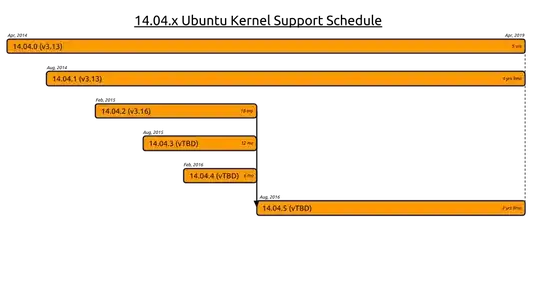My infrastructure is on AWS. All my ec2 server are running on ubuntu 13.10. Since 13.10 is EOL last year, i want to upgrade it to 14.04.01 LTS which has 5 year lifecycle.
What i want: i want to upgrade it to 14.04.01 LTS which has 5 year lifecycle.
Problem: When i run command ' do-release-upgrade' it shows me available version is 14.04.2.
But i dont want to upgrade it to 14.04.2 as it will be EOL in Aug 2016, instead i want to upgarde to 14.04.01 which will be EOL in 2019.
Can somebody please tell me how can i upgrade directly from 13.10 to 14.04.01 LTS.
Thanks
